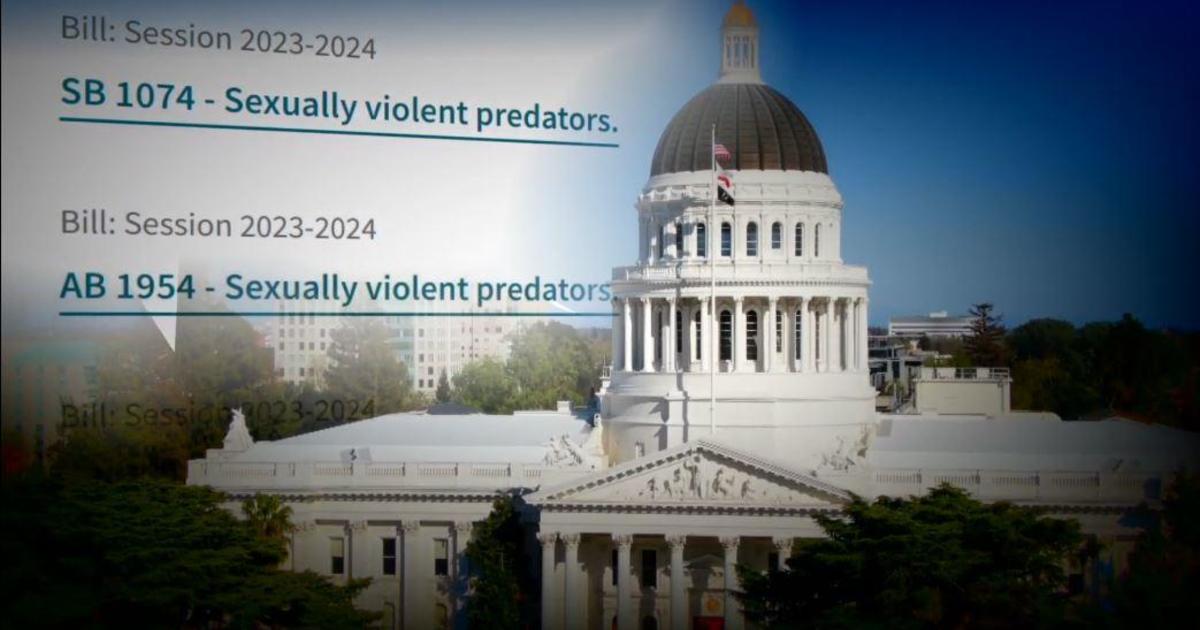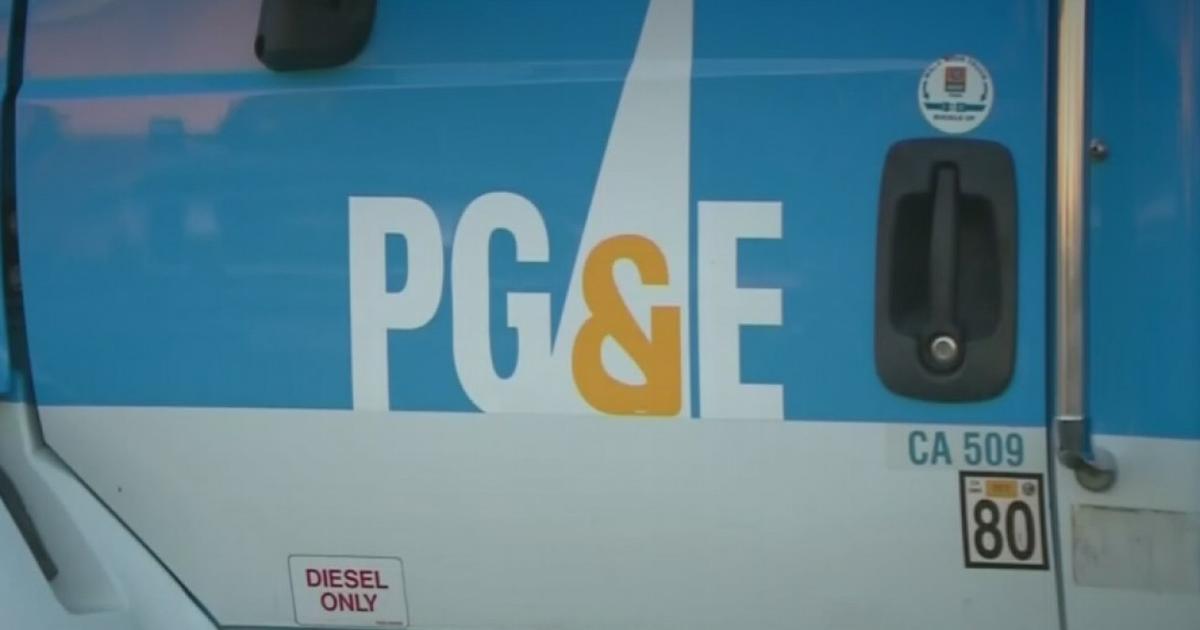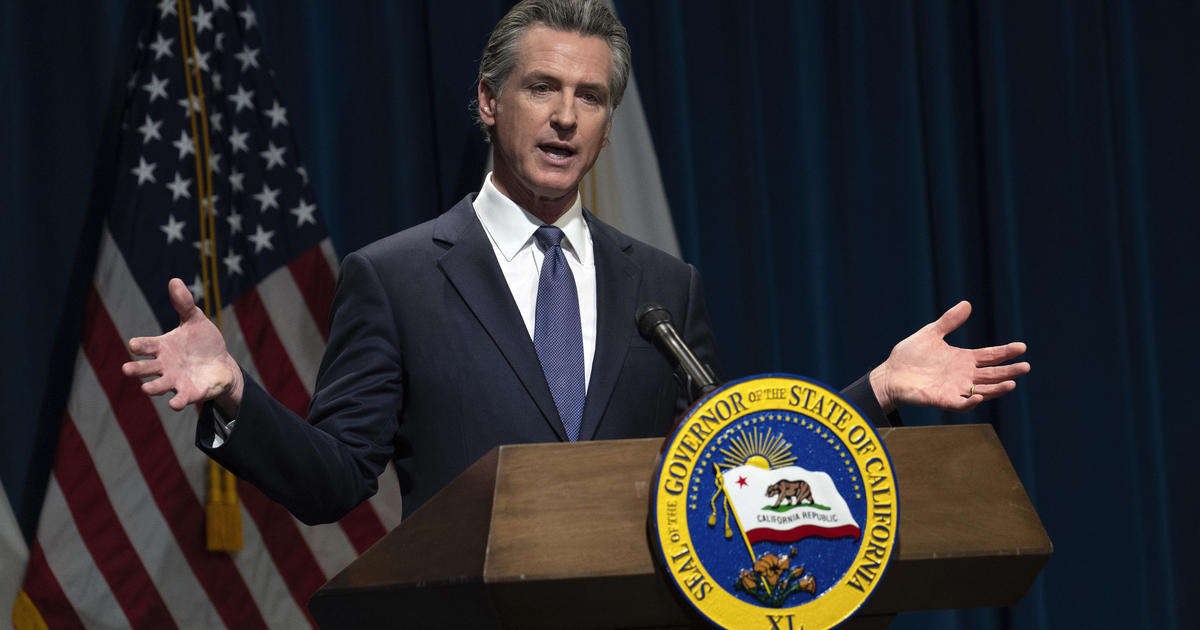California Assembly Bill Would Expunge 8 Million Criminal Convictions
SAN FRANCISCO (CBS SF) -- Assemblyman Phil Ting joined San Francisco District Attorney George Gascón Thursday to announce state legislation he's introducing that would use technology to clear records for former convicts eligible under existing laws.
Assembly Bill 1076 aims to clear records for an estimated 8 million people in California arrested or convicted of misdemeanor and non-violent offenses by automating the process.
"These are people who have paid their debt to society in many cases or people who were actually arrested and they were never convicted of a crime," Gascón said.
Because of their record, those people, he said, in many cases are excluded from employment in certain fields and from applying for housing, among other restrictions.
"The current laws allow people to get this relief," Gascón said, but many are "unable to get the relief because they either don't have the resources or they don't have the time," he said.
On average, only about 20 percent of those eligible for the relief actually seek it, he said.
"AB 1076 is actually very simple: it's asking the California Department of Justice to put together a database of all the eligible people who have served their time, served their probation, are done and are completely entitled to have their records expunged," Ting said.
The process of having a record expunged can cost up to $3,700.
That cost, combined with the time it takes to go through with the process, present barriers for some, Ting said.
"We know what the impacts are when you have something on your record. It's hard to find a job, it's hard to find housing, it's hard to have a normal life," he said. "The point isn't to keep that debt forever. At some point it's been paid and you get a chance to start over."
Much like the district attorney's office recently announced it used an algorithm to expunge more than 9,300 citywide marijuana-related convictions, AB 1076 would use a similar model, Gascón said.
"There would be algorithms that will be set up at the Department of Justice that will, on a periodic basis and very regularly, will go through the qualifying records and those that qualify will then be registered and the counties will be notified, the county courthouses, that they are no longer able to release that history to any private enterprise," Gascón said.
"The information will continue to be available for criminal justice purposes, but it will simply not be used to keep people from getting housing, from getting employment, getting educational loans, and quite frankly even participating in simple things like after school activities with their children."
Jay Jordan with the group Californians for Safety and Justice said he was convicted of auto burglary 14 years ago. After serving his time, he said he still feels like he's being punished.
"AB 1076 will begin to chip away a big piece of this iceberg from barriers that block people from everyday life," he said.
As a convict, he said he faces 43,000 legal restrictions, with 40 percent of those being employment-related and 70 percent being lifetime bans.
"That means I'm going to die with these collateral consequences.
And it's not just people like me; it's not just black folks in South Los Angeles, East Oakland, it's a lot of people," he said.
Jordan said with the current restrictions, he's unable to adopt a child with his wife and is having issues joining a homeowner's association, after recently purchasing a home.
Gascón said, "It's about bringing people back into mainstream society; it's about reducing recidivism. Every time we keep people from going back to a life of crime, we are reducing crime, were making our community safer.
"And it's quite frankly absurd to think we can put people in custody then release them with no skills, no housing, no employment opportunities; completely marginalized and then expect that somehow they're not going to have to go back to committing crimes in order to survive."
According to Gascón, the opportunity to clear a record wouldn't apply to sex offenses or violent crimes and does not have any effect on firearms ownership eligibility.
The records, however, could be revealed if the person applies for a government job and would also still be available to law enforcement and courts, he said.
If the bill passes, no action would be required from a person petitioning that their record be expunged.
© Copyright 2019 CBS Broadcasting Inc. and Bay City News Service. All Rights Reserved. This material may not be published, broadcast, rewritten or redistributed



